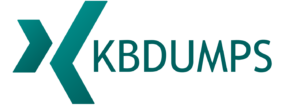
These 10 essential project management tools are crucial for fostering successful teams as effective project management is vital for teams to achieve success in their endeavors. In today’s fast-paced business landscape, having the right tools at your disposal can make a significant difference in streamlining workflows, enhancing collaboration, and ensuring project objectives are met on time.
Task Management Software:
Task management software provides a centralized platform for teams to create, assign, and track tasks. For example, tools like Trello and Asana offer features such as task prioritization, deadlines, and progress tracking. These tools ensure that team members are organized, aware of their responsibilities, and can easily collaborate on task-related matters.
Collaboration Tools:
Collaboration tools facilitate seamless communication and teamwork among team members. Platforms like Slack, Microsoft Teams, or Google Workspace offer instant messaging, file sharing, and video conferencing capabilities. Through these tools, team members can effectively communicate, exchange ideas, and collaborate in real-time, regardless of their physical locations.
Project Planning and Scheduling Software:
Project planning and scheduling tools enable project managers to create project timelines, allocate resources, and set milestones. For instance, tools like Microsoft Project or Monday.com provide features such as Gantt charts and resource management capabilities. These tools help teams visualize project progress, identify dependencies, and manage deadlines effectively.
Document Management Systems:
Efficient document management is crucial for project success. Document management systems like SharePoint, Google Drive, or Dropbox offer a centralized repository for storing, organizing, and sharing project-related documents. These tools ensure that team members have access to the latest versions of files, promote collaboration, and prevent version control issues.
Time Tracking Tools:
Time tracking tools help teams monitor the time spent on various project activities. Examples of time tracking tools include Harvest or Toggl. By logging their hours, team members provide valuable data for evaluating productivity, identifying bottlenecks, and optimizing resource allocation. These tools also aid in accurate project timeline estimations.
Communication and Feedback Platforms:
Effective communication and feedback are critical for project success. Tools like Trello, Asana, or Jira provide communication and feedback functionalities. Through these platforms, team members can leave comments, provide feedback, and track discussions related to specific tasks or projects. This fosters collaboration, reduces miscommunication, and ensures that everyone is aligned towards project goals.
Risk Management Software:
Risk management software assists project managers in identifying, assessing, and mitigating potential risks. Tools like Risk Register or RiskyProject enable teams to develop risk mitigation strategies, track risk status, and minimize the impact of unforeseen events on project deliverables. These tools help teams proactively manage risks and maintain project momentum.
Reporting and Analytics Tools:
Data-driven insights play a crucial role in project management. Reporting and analytics tools, such as Power BI or Tableau, allow project managers to gather and analyze project data, providing valuable metrics and performance indicators. By tracking key project metrics, teams can identify areas for improvement, make informed decisions, and optimize project outcomes.
Resource Management Software:
Effectively managing resources is essential for project success. Resource management software, like Resource Guru or Float, enables project managers to allocate resources efficiently, monitor availability, and ensure optimal resource utilization. These tools help teams avoid overallocation, plan for resource requirements, and maintain productivity throughout the project lifecycle.
Quality Assurance and Testing Tools:
Delivering high-quality results is a priority for any project. Quality assurance and testing tools, such as Jira or TestRail, assist teams in ensuring that project deliverables meet the required standards. These tools facilitate test case management, bug tracking, and quality control, helping teams identify and rectify issues before
These, 10 essential project management tools offer unique functionalities that can empower teams to significantly enhance productivity, collaboration, and project success in today’s dynamic project management landscape. From task management and collaboration platforms to risk management and quality assurance tools, leveraging the right tools plays a pivotal role in achieving these outcomes.
